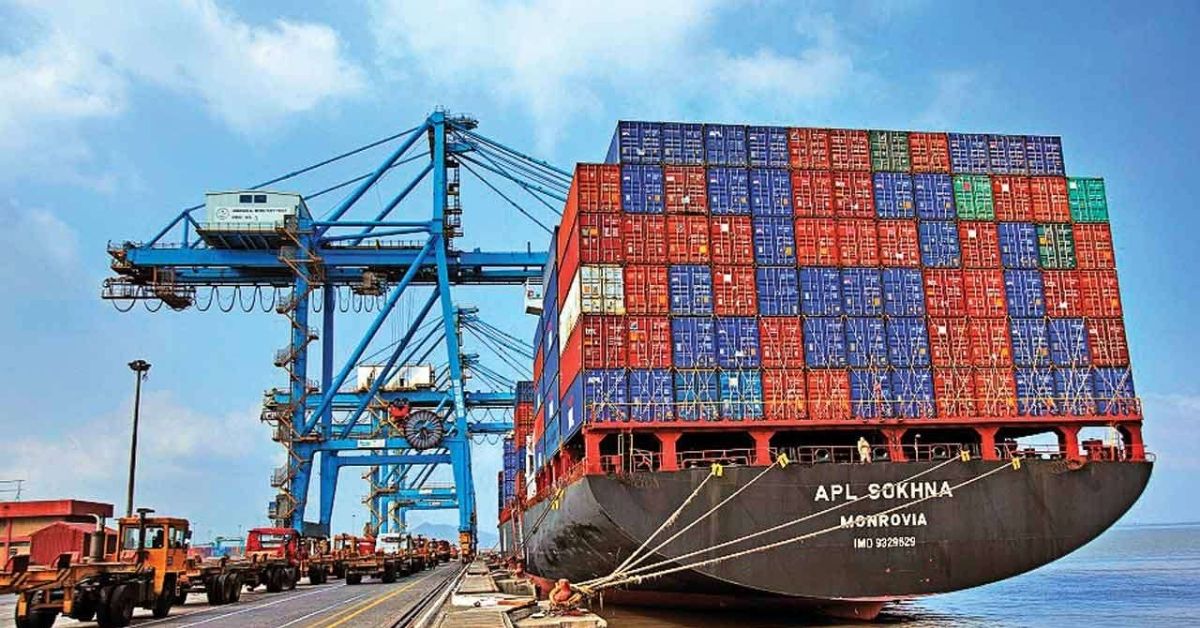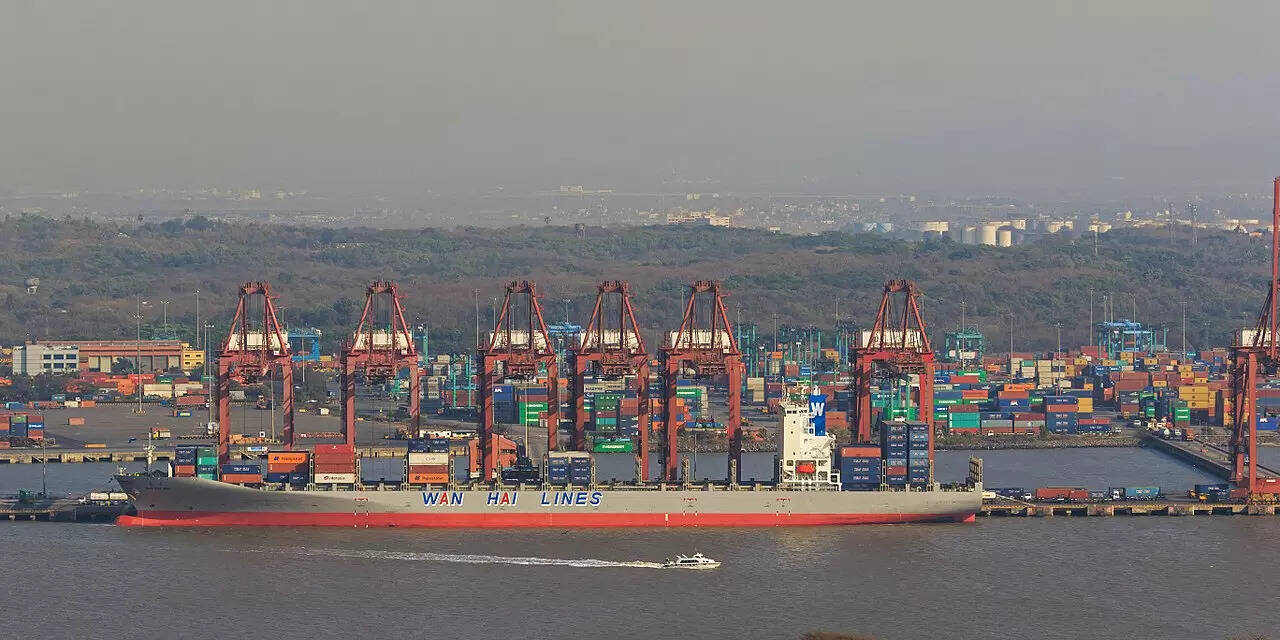The India’s leading shipping line is about to become privately owned.

Shipping Corporation of India Ltd. (SCI) will borrow money from the market to pay the obligation because it does not have enough “surplus cash” to transfer Rs 1,000 crores to a non-core company that is being formed as part of a demerger scheme that is essential to the privatization of the national carrier, India’s largest by capacity. This illustrates the problems with a split that is being forced through without justification.
The dark underbelly of the demerger scheme is revealed in documents, including board meeting notes and minutes, accessed by sources. Many believe this will put the state-owned carrier with the “Navratna” tag on course for an uncertain future as a business, whether it is kept under government control or privatized.
At its meeting on November 4, 2022, the board of directors of the Shipping Corporation of India discussed a plan to borrow about Rs350 crores as working capital for the upkeep and care of “Shipping House” in South Mumbai and the Maritime Training Institute in Powai, which over the past ten years has been done yearly for no more than Rs25 crores, in order to help partially fund the transfer of Rs1,000 crore to SCILAL, the non-core corporation. The main office of SCI is called the “Shipping House.”
On May 6, 2022, the company’s board of directors authorised a revised demerger plan that, among other notable changes, involved transferring Rs 1,000 crores—rather than the Rs 450 crores initially planned—from the company’s excess capital to SCILAL in order to segregate its core and non-core assets.
The audit committee members initially expressed varying opinions about the legal status of the assets, but after reaching a consensus for revision in the scheme, the board was informed, and as a result, the revised scheme of demerger was recommended for the board’s approval, according to the minutes of the board meeting on May 6.
On May 6, upon receipt of a “letter” from the government, the board assessed and approved changes to the demerger plan. Due to “the good results (for FY22) and a PAT (consolidated) of Rs865 crores as well as the low dividend being recommended due to the constraints while there has been a cash profit of Rs1,474 crores,” the board increased the transfer of excess cash in the revised demerger plan from 450 to 1,000 crores.
The 44 acres (1,78,871.1 square meters) of land in Powai, where it operates the maritime training college were revalued in FY16, bringing the total value to around Rs 2,376.29 crore. This amount is included in the balance statement under the heading “General Reserve.”
SCI implemented Indian Accounting Standard 27 (Ind AS 27) in FY 16, which required determining the carrying value of assets (ships), and during this process, the value of the ships would be restated based on the revenue obtained from the ships if the ships were experiencing losses. As a result, SCI’s profit and loss account saw a loss of almost Rs 2,537 crore as a result of the steep decline in charter prices.
SCI increased the value of the MTI land as compensation (freehold land given as a grant by the Maharashtra government for the specific purpose of running a maritime training institute). This made it easier to reconcile the rise in the value of the MTI property with the monetary loss suffered by SCI. According to the Companies Act, a corporation cannot declare a special dividend unless it can prove that its retained earnings are higher than the general reserve. If three conditions are met, one of which is that the dividend rate cannot exceed the average of the preceding three years, it is still feasible.
The SCI board announced a dividend of Rs0.33 per share for FY22 on May 6. In FY21, the dividend rate was Rs0.25, while in FY20, it was Rs0.75. Typically, the government directs a state-owned corporation to pay a special dividend to the shareholders to extract the excess cash from it before the sale. However, due to the already mentioned embargo or the prohibition on declaring special dividends under the Companies Act, the extra funds would be locked in SCI and could not be removed by the government.
The impacts of the greater financial transfer from SCI to SCILAL had started to become apparent by the time of the following board meeting on August 8. Concerns about the implementation had arisen inside SCI, raising questions about how the transfer of Rs 1,000 crore was “decided by the board” and whether it was “prudent” or not. The amount, according to a source with knowledge of the issue, was “chosen” without contacting the company’s Treasury Department.
The board stated that “the sum of Rs. 1,000 crores was calculated and informed to the board in the meeting held on May 6” during the meeting on August 8. The additional Rs. 550 crores, however, were not set aside or maintained in an escrow-type arrangement in advance of the meeting for eventual transfer to the emerging business (SCILAL).
The predicted cash balance position as of March 31, 2023 (FY23) was reported to the board at the meeting on August 8 and was based on the balances of cash, mutual funds, and fixed deposits as of June 30, 2022, as well as anticipated net inflows for the remaining nine months of the fiscal year. For allocated funds, personnel obligations, and anticipated dry dock costs (including ballast water treatment systems), the predicted cash balance was modified. The estimated surplus amount is anticipated to be less than Rs 1,000 crore, according to this exercise’s conclusion.
“If SCI must proceed with the transfer of Rs. 1,000 crores to the resulting company (SCILAL), as a result of receiving clearances from the appropriate parties, SCI will be forced to borrow additional funds to make the said transfer, which will be at a cost that is expected to be higher than the current rate of borrowing (MCA, etc.). (Because there won’t be as much liquid cash remaining and the asset base will be lower,
It could be challenging to meet obligations on time in the absence of a bigger cash flow than anticipated, which could happen if the trade situation improves. Since surplus cash is classified as a non-core asset in the demerger plan, it is expected that borrowing is not going to be utilised to pay for the transfer to the new company. The Board acknowledged the position, according to the board meeting minutes dated August 8th.
In light of this situation, the company management submitted a proposal to the board of directors for consideration on November 4. The proposal noted that SCI had previously benefited from converting a sizable portion of its short-term borrowings into medium- and long-term loans, which helped to improve its “current ratio” and “liquidity position.” The board proposal stated, “In light of the same, it is deemed that SCI would benefit from converting its remaining short-term loan into a long-term loan.”
The request to convert the short-term loan from the Bank of India for USD 31 million (about Rs 260 crores) into a medium- or long-term credit was justified in the note with the following information: The bank limit has to be rolled over at the end of the third month because the loan is on a three-month rollover basis.
Due to regulations on the “ever greening” of loans and credit risk policy, the bank is only permitted to do up to three rollovers. Therefore, based on the bank’s sanctioning options, it is necessary to convert the current short-term loan into a medium- or long-term loan of 3-5 years.
“SCI works in a capital-intensive industry, and requiring the company to make considerable financial transfers to SCILAL will decrease the amount of working capital that is available each day and raise the cost of debt,” the company claims. The person inquired, “Did the audit committee and the SCI board engage thorough talks to ensure the preservation of minority shareholders’ interests and analyse the impact of the decision on SCI’s operations, expansion, and profitability, as well as its status as a going concern?”
According to bankers, the “Shipping House” and the land and structures owned by MTI always served as a “comfort factor” when approving loans to SCI for the purchase of ships. Its absence “will probably have an impact on the company’s creditworthiness and raise alarm among lenders,” a banker said. The entire amount of debt owed by SCI is anticipated to be Rs 2,593 crores by the end of March 2023. This debt consists of a short-term loan of Rs 252.81 crore, a long-term working capital loan of Rs 1,545.16 crore, and a long-term project (vessel) loan of Rs 795.03 crores.
According to the initial demerger plan, SCILAL would only get non-essential assets like “Shipping House” and the land and buildings of the Maritime Training Institute once the core shipping firm had been sold to a private strategic bidder.
According to documents obtained by, the Ministry of Ports, Shipping, and Waterways instructed the SCI board to complete the demerger process and transfer the non-core assets to SCILAL “on an immediate basis” before the completion of the “Share Purchase Agreement” with the private buyer in a letter dated April 22, 2022. The SCI board gave its approval to this during its meeting on May 6.
The Maharashtra government granted a long lease for the site where the “Shipping House” is situated and where the maritime training college is operated. Therefore, following the original demerger arrangement, the state government would need to approve the transfer of these assets to a new corporation held by the Center. This stipulation was dropped from the updated demerger plan.
It is seen as “risky” to finish the demerger of core and non-core assets before privatizing SCI. “If the privatization doesn’t go through for any reason, SCI will be forced to pay rent at market rates to the government or its nominated agency to operate from its building, putting further strain on its finances already depleted by the proposed carve-out of “Shipping House” and MTI,” the individual previously cited said.
In order to transfer its 49 percent ownership position in Irano Hind Shipping Firm, a joint venture with Iran’s state-run Islamic Republic of Iran Shipping Lines (IRISIL), to the noncore company, SCI needed a critical no-objection certificate (NOC) from the Iranian government.
This clause was also removed from the revised demerger scheme. The Ministry of Ports, Shipping, and Waterways pushed the SCI board to remove “any legal conditions or prior approvals” included in the original demerger scheme before the May 6 meeting because they could “impact” obtaining “approval” from the Ministry of Corporate Affairs and other authorities and “were detrimental to a smooth demerger.”
The agenda for the board meeting on May 6th, which includes the new demerger plan, is also shrouded in mystery because it is claimed that it was drafted around midnight on May 5th and not distributed to the board members beforehand. According to the aforementioned person, this suggests that the “Secretarial Standards on Meetings of the Board of Directors” (SS-1) of the Institute of Company Secretaries of India (ICSI) were not adhered to.
The agenda containing the items to be discussed at the meeting and the notes on the agenda must be provided to the directors at least seven days before the meeting date, per SS-1, unless the articles stipulate a longer period. Five newly appointed independent directors on the board of SCI were present at their first-ever board meeting of the national carrier on May 6, according to a second person with knowledge of the issue, adding extra importance to the listed company’s alleged irresponsibility.
He said that the newly appointed board members go through the induction training process that is believed to have received the approval of the company’s senior management. Thus, the legality of transferring Rs. 1 billion, as well as other issues covered under the demerger plan, were brushed aside.
These new independent directors might not have had enough time or opportunities to fully comprehend the original demerger scheme and the recommended adjustments prior to approving the updated demerger plan on May 6. As of publishing, SCI has not provided a full response, as far as we are aware. The Ministry of Corporate Affairs will hold a final hearing on the revised demerger proposal on December 29.
Edited by Prakriti Arora




